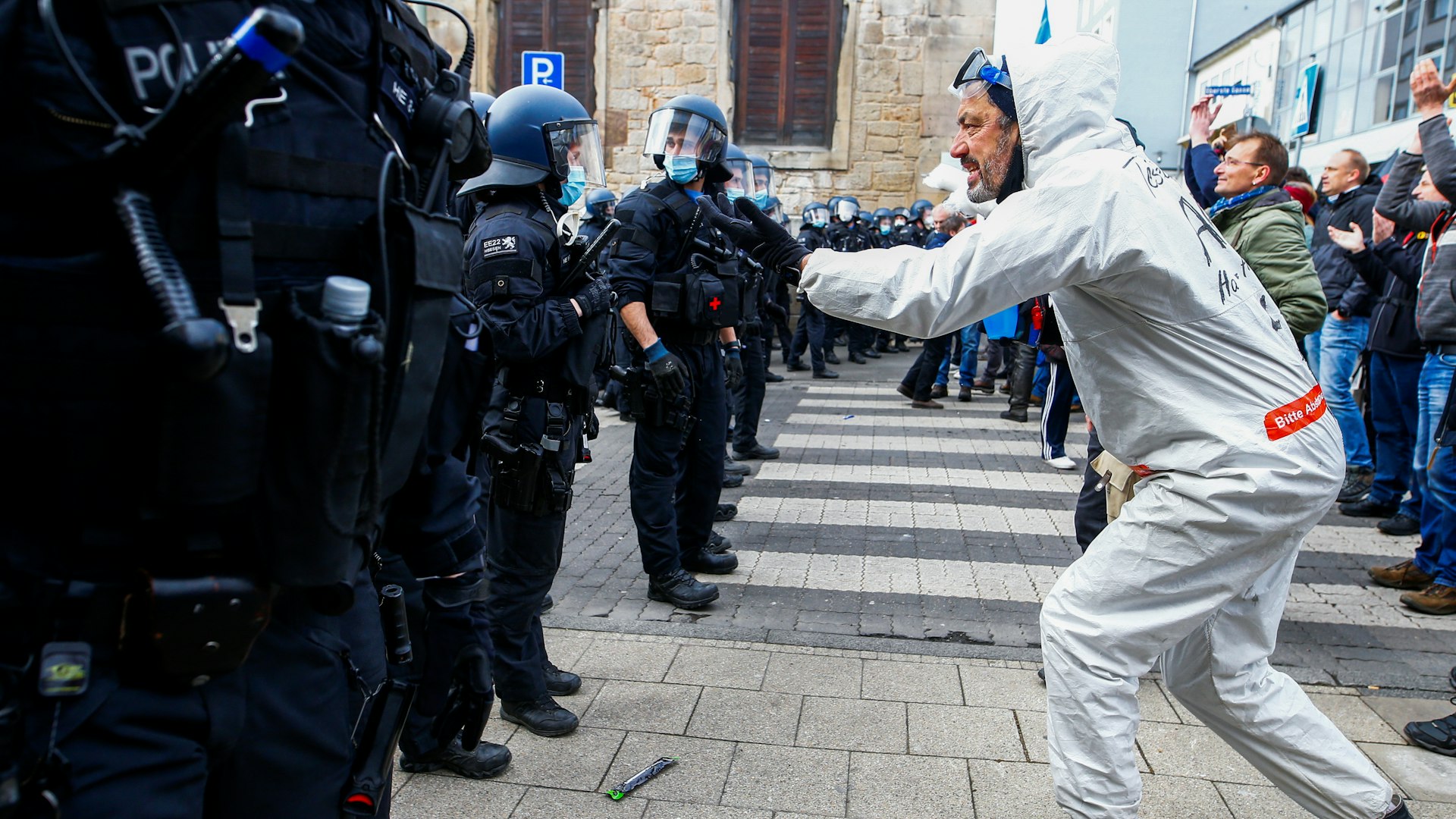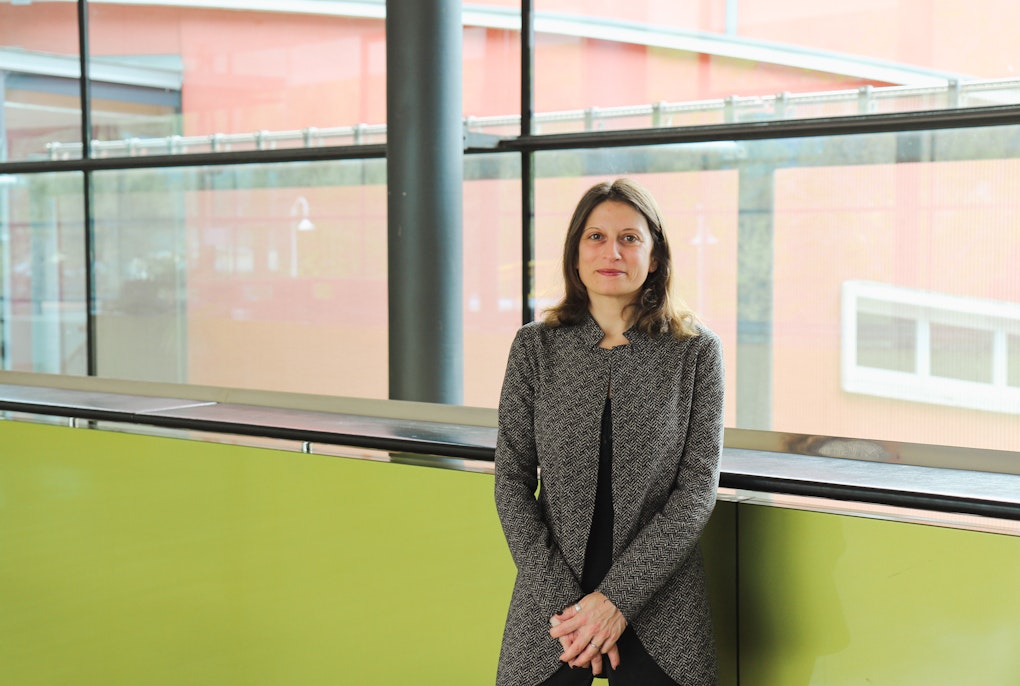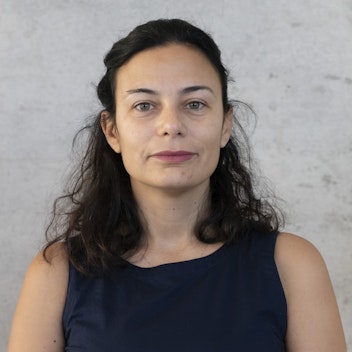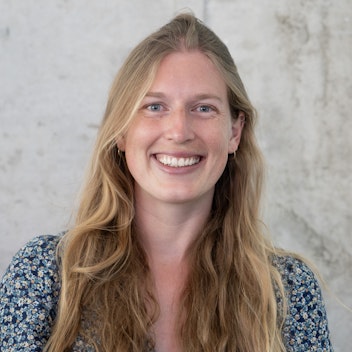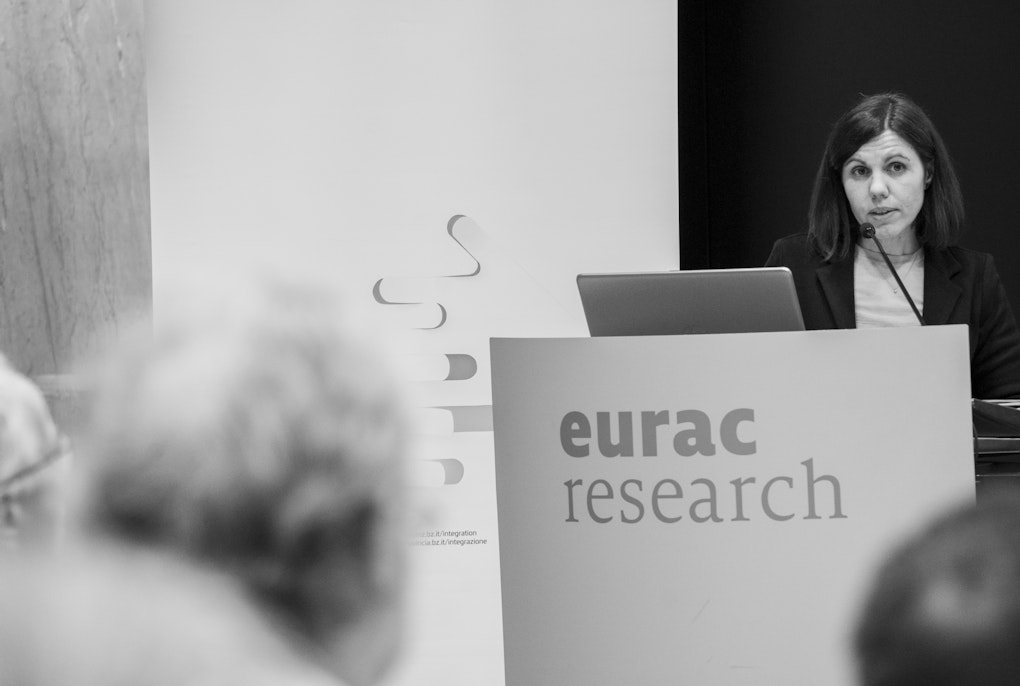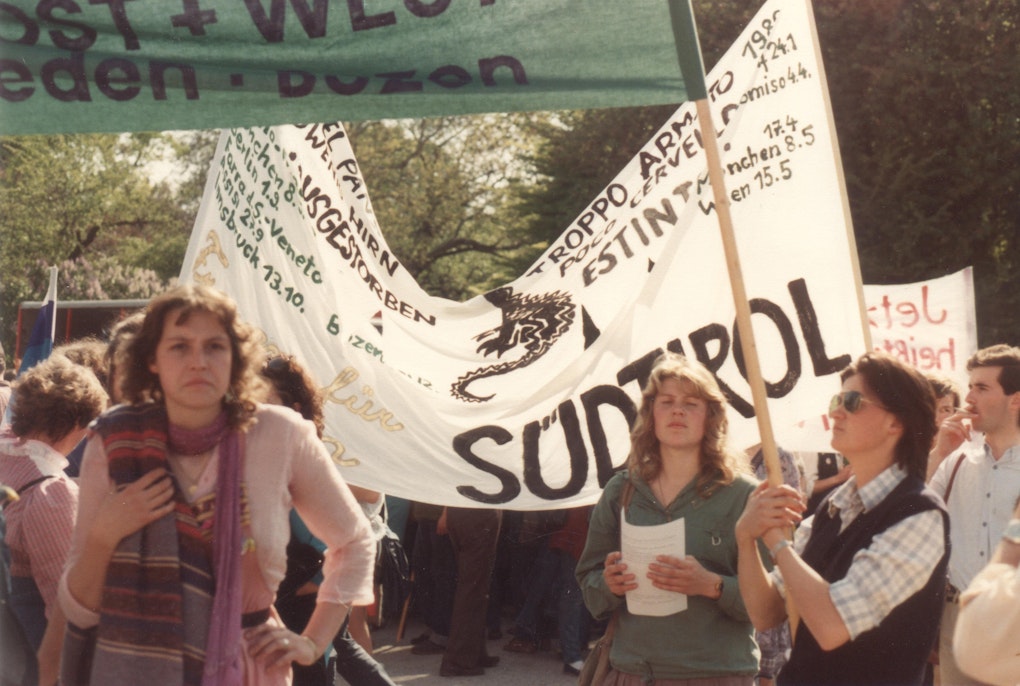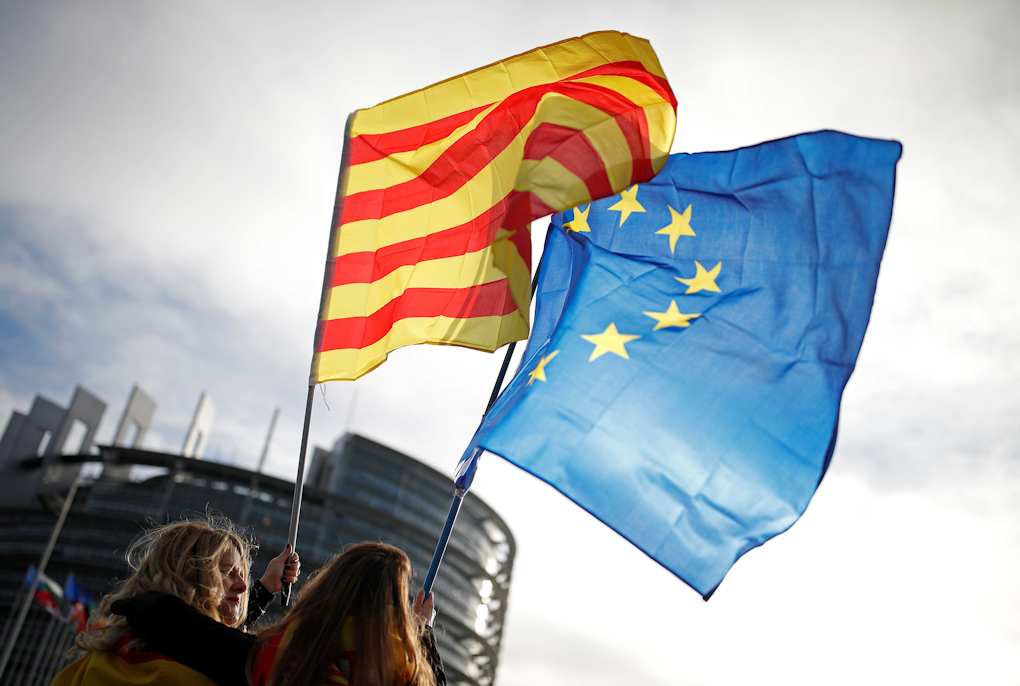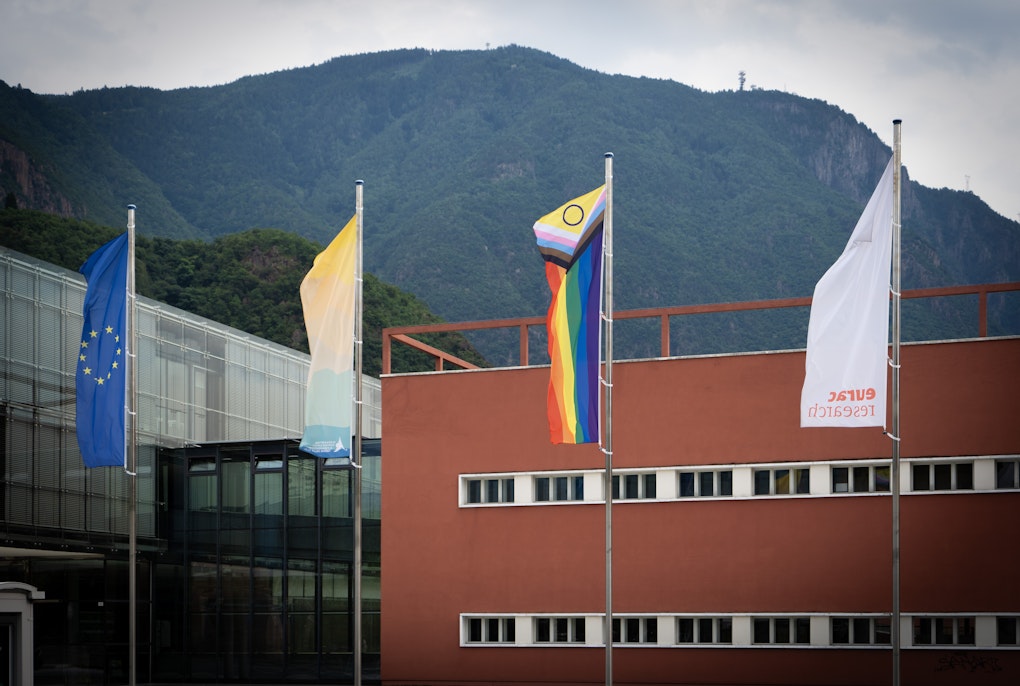magazine_ Interview
"What good is innovation if society falls apart?"
Stephan Ortner, director of Eurac Research, on the experience in and lessons learned from the pandemic
Eurac Research has far exceeded its expectations during this difficult year and a half, explains Director Stephan Ortner. However, what the pandemic has revealed about our society makes him doubt whether we are up to the next, bigger challenge: the climate crisis.
One and a half years of crisis management lie behind you: With what feeling do you look back?
Stephan Ortner: I think we can be satisfied - I say "we" because a whole Task Force from different areas was involved in the crisis management: Health, Safety & Environment, Human Resources, Legal Office, Research, Communications. In an anonymous survey, employees gave us a predominantly positive assessment of how we managed this exceptional situation, which I don't take for granted in such a tense and troubled times: It's easy to get criticized, no matter what you do.
It was certainly important that we made transparent decisions. And we acted in good time - we had a common attitude in the Task Force, which I would describe casually as follows: Don't take cover and wait, but pick up the shovel and get out there. A pandemic is also a kind of test of character.
Did Eurac Research stand up to the test?
Ortner: My expectations were actually far exceeded. There were so many people who said: We're doing something, we're facing the crisis, we're helping. On the one hand, there were the medical research teams, who worked hand in hand with the local health authority, but they weren't the only ones - no one slowed down two gears during the crisis, on the contrary, it seemed to me that many people really stepped on the gas. You can see it in Eurac Research’s completed, acquired and newly submitted projects.
As of March 2020, Smart Working was introduced for 80 percent of the workforce - home office with flexible working hours. Did you have any doubts about whether this would work?
Ortner: It was rather some of the Head of Institutes who had doubts. I have been convinced for years that this can work well. Although it was of course difficult and stressful for many during the lockdown with children. But there was no other instrument: If something like that had happened earlier, Eurac Research would have had to close down for a year, like many other companies. Now we have this defense strategy - thanks to the general, enormous development in the area of digitalization, a real quantum leap. It will now be interesting to see what we retain in the future and where we return to earlier ways of working.
Researcher had to recognize: One thing is pure teaching - the other is how to communicate and implement it.
Stephan Ortner
Eurac Research: A Pandemic Year in Numbers
That all employees go to the office regularly: That's over?
Ortner: I think so. Some will be happy to come back to the office more often, others may have noticed that they like working in their own personal space and more independently. Being able to determine this for yourself, I think, has a positive effect overall on well-being and performance. At the same time, we have to make sure that the opportunities to meet in person don't become too rare, that we don't lose one or the other in isolation. It remains to be seen what all this will mean for our cities - for the hospitality industry and all the other services that are linked to office operations. There are changes and new challenges ahead. From the point of view of climate protection, however, it is of course a very positive development.
You've already touched on it: Research teams have been working closely with the local health authority or dealing with the effects of the pandemic. Can the pandemic experience possibly help research gain more prestige locally, even in the longer term?
Ortner: The value of research has become very clear, that's true. Whether the image of research was always the best remains to be seen, but it has become clear that researchers are only human. And in this new situation, where they suddenly had to align themselves much more strongly with society and politics, they also had to recognize: One thing is pure teaching - the other is how to communicate and implement it. I believe that this was a learning process for both sides, and in the best case, more mutual understanding has resulted. The reputation of research has certainly not declined.
Could this even mean more funding for research?
Ortner: Unfortunately, the fact that less money is available as a result of the crisis and that a lot will be needed to alleviate social hardship speaks against this. However, science will be important to meet the challenges of the post-pandemic - and I think especially the humanities and social sciences, which have recently had a rather hard time getting funding because technical and scientific innovation was considered a priority. The problem we face now is a deeply divided society. No vaccination will solve that. Parallel worlds have emerged that cannot be reached with scientific facts. The question is: How do we manage to find a common level of discussion here in the first place? I think it's not so much the natural sciences that are needed here. After all, what good is innovation if society falls apart?
How are we going to confront the climate crisis when scientific arguments no longer penetrate a part of society?
Stephan Ortner
Meaning the humanities and social sciences will gain new importance?
Ortner: Yes, I see a great need here. In my view, the division that has been revealed here was just a foretaste of what awaits us with regard to the climate crisis: How are we going to confront it when scientific arguments no longer penetrate a part of society? Or another major issue that must concern us: the weaknesses of democratic systems; a survey on whether democracy is a great thing would certainly yield different results after the pandemic than before. Therein lies a danger. Or the increasing inequality. Also, the fatal role played by social media, with its constant strife, the division of the world into good and evil. The pandemic has scanned our society like an X-ray machine, for a year and a half, and brought all the weaknesses to light.
What lesson do you think we should learn from this?
Ortner: One thing became very clear, I think: A society that is already so fragmented and divided in normal, peaceful times can hardly cope with problems of such dimensions. We need something common again, a kind of core spirit that helps us to assert ourselves as a society - this has nothing to do with nationalism, or with wanting to be the strongest. We can be the ones who are particularly helpful, or who adapt particularly well to natural conditions. If we look to Asia - and I don't mean authoritarian systems - we see: Societies in which there is greater respect for fellow human beings were more resilient in the pandemic.
